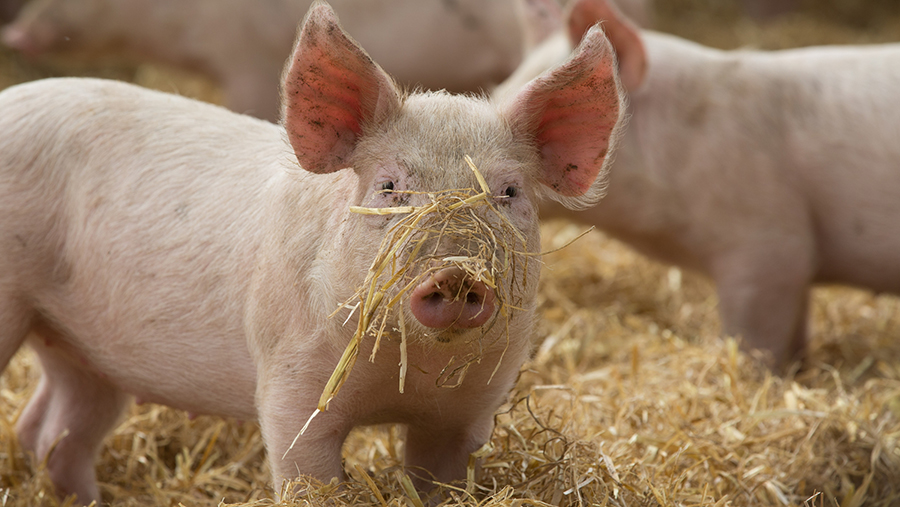First PRRS-resistant pigs bred in scientific breakthrough
 © Tim Scrivener
© Tim Scrivener Pigs resistant to the “devastating” porcine reproductive and respiratory syndrome (PRRS) virus could be available to UK farmers in the next five years thanks to groundbreaking US research.
Researchers from the University of Missouri, working in collaboration with British firm Genus and Kansas State University, used breakthrough technology to successfully breed pigs resistant to PRRS.
No cure exists for PRRS, also known as blue ear pig disease, and it is estimated to cost European farmers £1.5bn/year.
Scientists used gene editing to inactivate the gene responsible for production of CD163 – a protein, which helps PRRS spread within a pig’s body.
“Once inside the pigs, PRRS needs some help to spread; it gets that help from a protein called CD163,” explained Randall Prather, professor of animal sciences in the College of Agriculture, Food and Natural Resources at the University of Missouri.
“We were able to breed a litter of pigs that do not produce this protein, and as a result, the virus doesn’t spread,” said Prof Prather.
He added: “When we exposed the pigs to PRRS, they did not get sick and continued to gain weight normally.”
See also: £6m funding to improve livestock health in UK
What is PRRS?
- First signs of PRRS infection observed in the UK in 1991
- Virus transmitted between pigs through nose-to-nose contact and via infected semen or infected faeces
- Can lead to reproductive failure, reduced growth and premature death
- Considered one of the most economically harmful viral pig diseases in Asia, Europe and North America
Kristin Whitworth, co-author of the study, claimed the discovery “could have enormous implications for pig producers and the food industry throughout the world.”
While Dr Jonathan Lightner, chief scientific officer and head of research and development at Genus, branded the discovery a “potential game-changer for the pork industry.”
Genus is now “progressing in the development” of the technology under an exclusive global license from the University of Missouri.
It will be at least five years before pigs resistant to PRRS are available in the UK and worldwide, the company said.
“There are several critical challenges ahead as we develop and commercialise this technology; however, the promise is clear, and Genus is committed to developing its potential,” added Mr Lightner.
Marcus Bates, CEO of the British Pig Association, welcomed the development, but said there were advantages for the British pig industry in gene editing above PRRS.
He said the development would be more relevant to farmers in North America, Asia and mainland Europe, where PRRS strains are more virulent.
“We’re much more worried about these other strains, or more exotic diseases such as African swine fever,” said Mr Bates.
“But there is all sorts that might be done with this technology in future,” he added.
